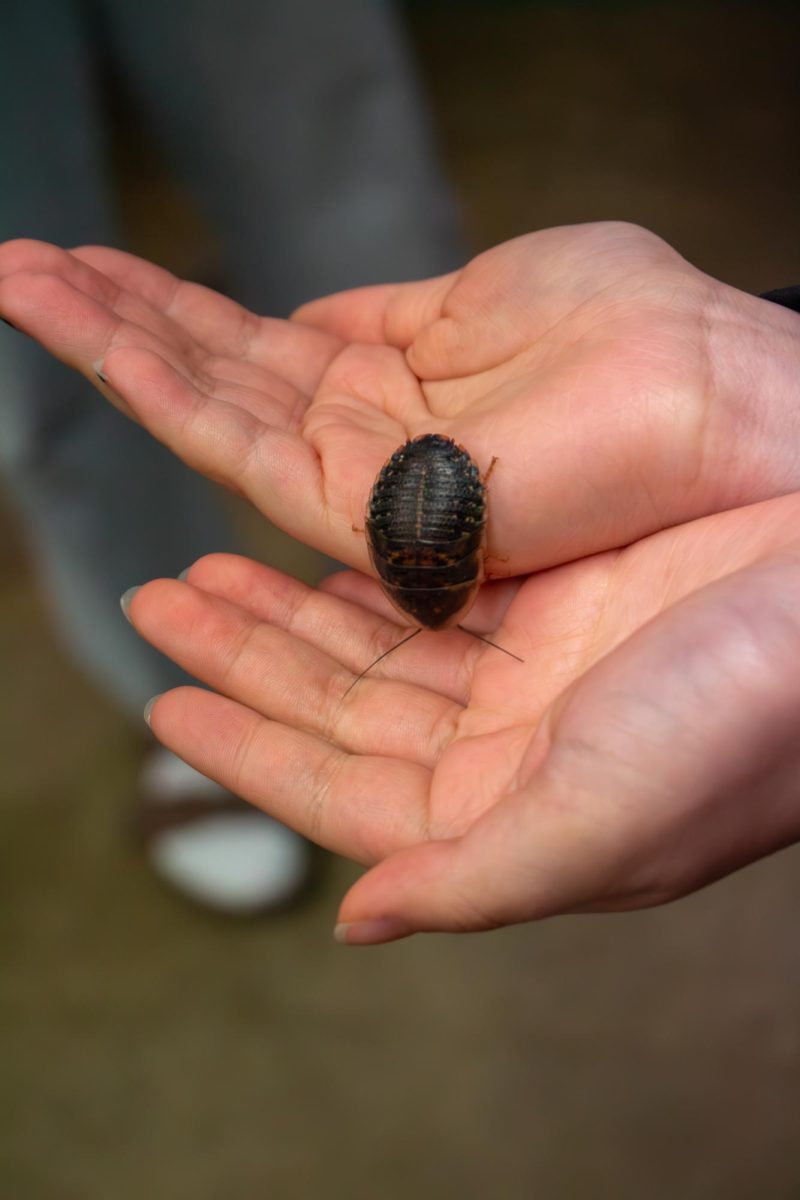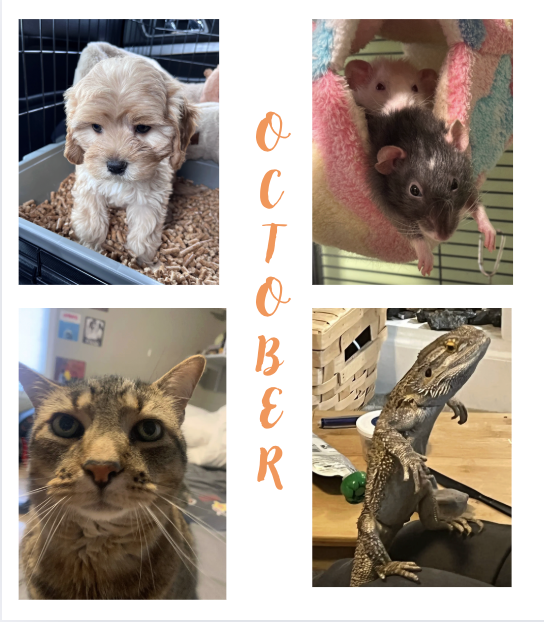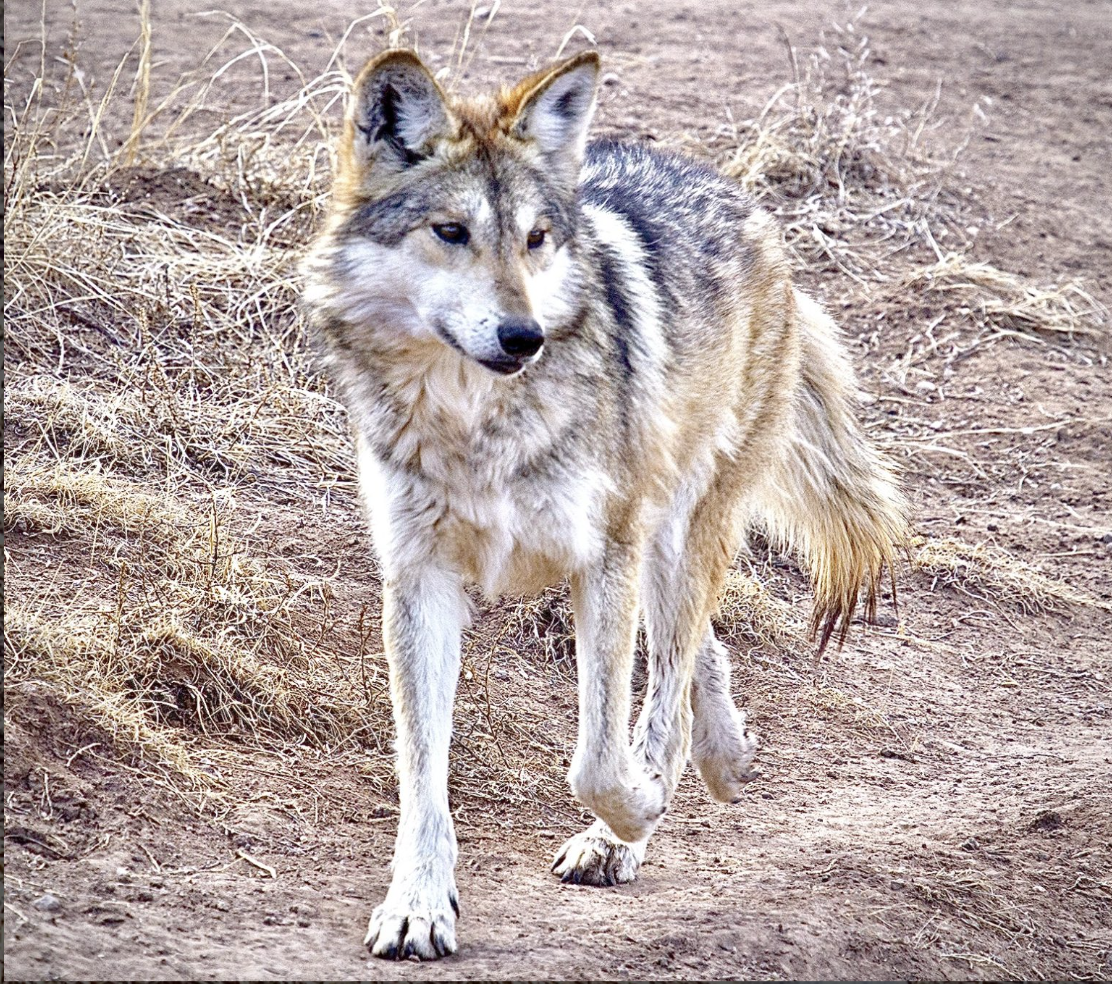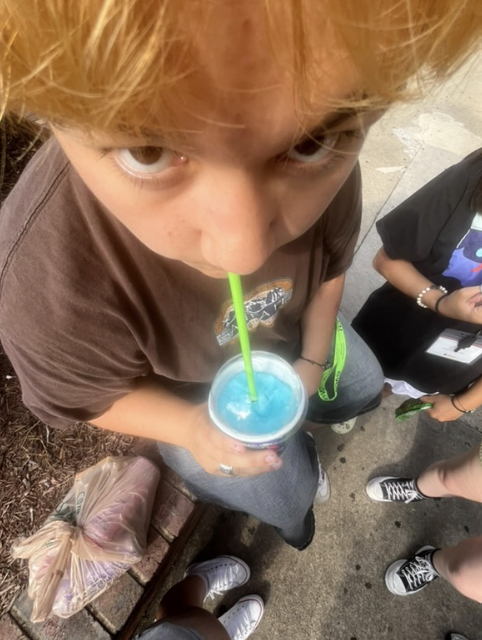In the 1970s, the Mexican Grey wolves were almost extinct with a population of only 7. In 1976, the United States started to take action to save them. They were listed as endangered and put in a binational captive breeding program. In 1998, the US Fish and Wildlife Service released the first captive wolves into the wild, the Mexican Wolf Experimental Population Area. Now there are roughly 250 wolves in this population area.
Asha is where this story takes a turn. “Asha” is a name given to wolf, F2754, a young female born a part of the Rocky Prairie Pack. Asha means hope in Sanskrit and it fits her all too well.
In late 2022, Asha left her pack for the first time, but it wasn’t until January of 2023 that Asha had left the population area. Later that month, she was captured for the first time by the U.S Game and Fish Department near Angel Fire, New Mexico. Asha’s mission when leaving was to look for a mate who wasn’t closely related to her, like most males in her pack were. Even though her motives were pure and instinctual, she was temporarily held in captivity until June. She was then translocated to the Apache National Forest in southeast Arizona.
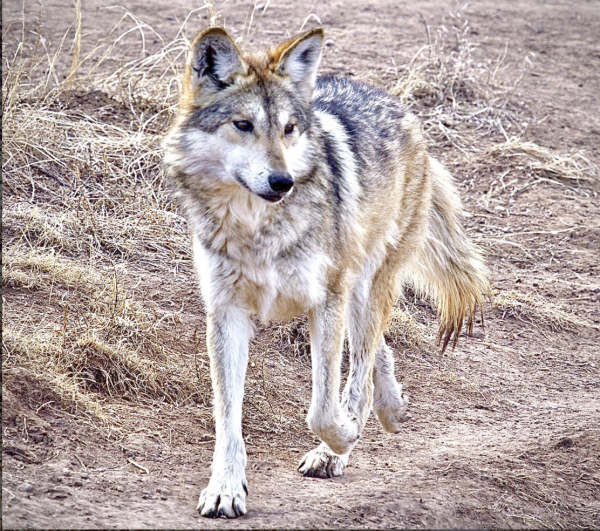
In late October 2023, she left the population area for the second time. She was caught again in December of 2023. Many activists were outraged by this capture. Deputy director of Western Watershed Project, Greta Anderson, argued that “Wolves roam, and roaming is an integral part of their individual and collective identities. Asha deserved to live her wild life and not be used as a pawn in the political battles over wolf recovery in the west.” Renee Seacor, carnivore conservation advocate at The ReWilding Institute, stated that “Wolves do not see invisible political boundaries, and Asha’s epic journey northward shows us the possibility of range expansion into the Southern Rockies where lobos historically roamed.”
Asha soon was introduced to two captive born brothers, named Horizon and Arcadia, in hopes that she would mate with them. In the spring of 2024, Asha mated with Arcadia but unfortunately did not give birth. Her initial release date was the summer of 2024, but when it arrived no word about releasing her was given. On July 25, 2024, the U.S. Fish and Wildlife Service announced that Asha would not be released at all in 2024. Activists again were outraged to learn that she wouldn’t get released for at least another year. Chris Smith, the southwest wildlife advocate for WildEarth Guardian, is one of the many people to comment on this issue. “Her value does not depend on whether she can breed,” said Smith. “She is a wild wolf who has proven she can take care of herself in the wild, and should be allowed to do so.”
We currently have no confirmed release date for Asha, but as breeding season approaches us in 2025, we must remember Asha’s story and advocate for those who can not. These wolves deserve freedom to roam in the wild without artificial boundaries. It will take years to make these much needed changes, for now, we must spark the change by advocating for Asha and her pack. To make your voice heard, visit http://bit.ly/4gBqlQc to write a letter to decision makers, review the current Mexican Grey Wolf Recovery Plan, or/and do your own research on this case.








